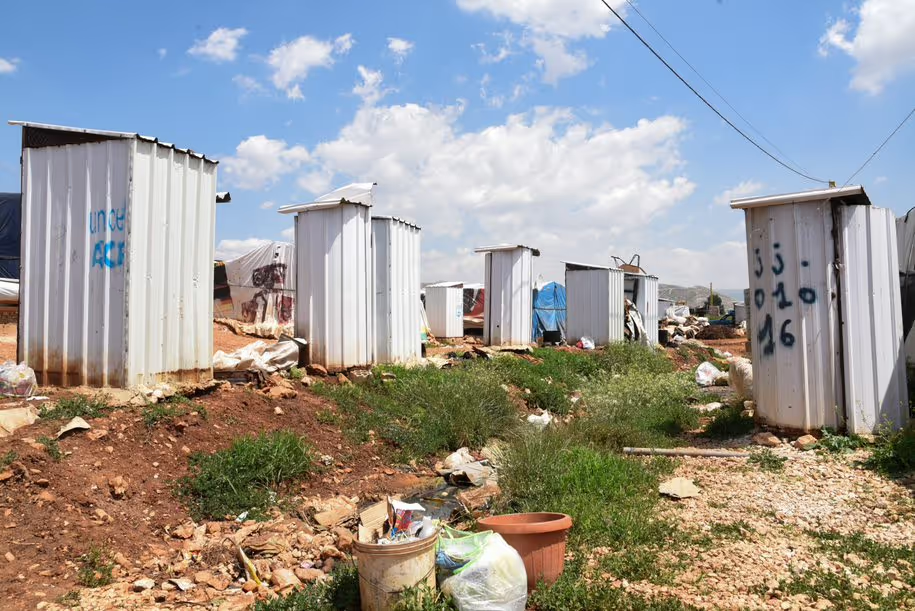WASH Innovation Challenge: Exploring the barriers to inclusion faced by people living with incontinence
The aim of this Challenge is to build on existing evidence and insights to further understand the barriers to inclusion that people living with incontinence face, so that more holistic, effective and inclusive WASH programmes can be developed.
Projects Funded Through This Call
Explore the projects that have received funding from this call. Each project showcases innovative solutions addressing [relevant field or focus area].
Please note that this opportunity has now closed. Find out about our current and previous funding opportunities. Incontinence is a complex health and social issue that is often overlooked in humanitarian settings. In stable high-income contexts, this health issue is reported for one in four women and one in ten men (Giles-Hansen, 2015). In humanitarian settings, because of the additional trauma, stress and potential injuries, the prevalence of incontinence is likely to be significantly higher.
The Problem
In humanitarian settings, incontinence could restrict access to essential services such asdistributions of food, water or health services, or restrict the ability to meaningfully participate in decision-makingprocesses, leading to further social exclusion and vulnerability.
Incontinence management has recently startedgetting attention in the humanitarian sector, most noticeably in conversations about sanitation materials (House,2016). However, there is still little information about the experiences of and barriers faced by people living withincontinence when it comes to accessing relevant services and meaningfully participating in needs assessments, and inthe design, implementation and evaluation of WASH humanitarian programmes.
The aim of this Challenge is to buildon existing evidence and insights to further understand the barriers to inclusion that people living with incontinenceface, so that more holistic, effective and inclusive WASH programmes can bedeveloped.

The Challenge
We’re looking to understand the experiences of people living with incontinence and the barriers they face to inclusion in WASH humanitarian programming: including needs assessments, programme design, implementation, and monitoring and evaluation (M&E).
Projects will be at the Problem Recognition stage of the innovation process andwill aim to provide a comprehensive and developed understanding of the barriers to inclusion faced by people living withincontinence in a specific humanitariancontext.
Get the full details in the Challenge Handbook
For further information about the three Calls, as well as criteria for solutions, expected deliverables and application timelines, and a glossary of key terms, please read the Challenge Handbook.
[.cta_link]Read now[.cta_link]
Resources produced
Lorem ipsum dolor sit amet, consectetur adipiscing elit. Suspendisse varius enim in eros elementum tristique.
Frequently Asked Questions
Lorem ipsum dolor sit amet, consectetur adipiscing elit. Suspendisse varius enim in eros elementum tristique.
Where possible, we will support applicants search for partners, but we are not able to commit to securing partners for applicants. If you have a particular type of partner in mind, get in touch with us and we will see how we can help.
To apply for the Challenge, fill out the Expression of Interest (EOI) via our Common Grants Application platform. Already have an account? Login to start an application. Don\'t have an account? Sign up to open an account and start an application.
We’re here to help. For any questions that are not covered by the Challenge Handbook or FAQ section, please email us at [email protected], referencing ‘Incontinence Management Challenge’ in the subject line.
The Challenge launches on 23 May 2019. The deadline for expressions of interest (EOIs) is 23 June 2019 (23:59 BST). Apply via the Common Grants Application platform. For further information about the application process and timelines, see Challenge Handbook.
We have a total budget of £100,000 available for this Challenge. From this, we envisage funding a selection of projects with varying budgets; ideally in the range of £30,000 to £70,000 per project. The projects will run for between 12 and 18 months and the total duration should cover both implementation and dissemination. The proposed budgets and timelines should align with the level of ambition of each individual project within the Challenge parameters. Each solution will be assessed on its own merit and potential for impact: this means that both smaller and larger projects will be on an equal footing when being evaluated. Please note that the grant amount requested at EOI stage can be indicative. Detailed budget plans will be requested at the full proposal stage.
We welcome applications from any legally registered entity (eg, INGO, NGO, UN, academic, private company). Successful applicants must work in partnership with a humanitarian actor. Wherever it is possible, applicants should develop meaningful partnerships with local organisations to support implementation; in particular, with local humanitarian actors and civil society groups (organisations of people with disabilities (OPDs) and older people’s associations (OPAs) ). Any partnerships can be indicative at the Expression of Interest (EOI) stage but must be formalised when your full application is submitted if your proposal is shortlisted. For further information about requirements and success criteria, see Challenge Handbook.
Other funding calls
Discover additional funding opportunities and what support could be available for your innovation project or research study.
R2HC Uptake and impact small grants
Elrha’s Research for Health in Humanitarian Crises programme aims to improve health outcomes for people affected by humanitarian crises by strengthening the evidence base for public health interventions. Since 2013, we have funded more than 100 research studies. We have identified a critical gap in funding for knowledge translation, communications and engagement activities required for research findings to be understood, used and applied by humanitarian stakeholders.
AI for Humanitarians: Shaping future innovation
Supporting a cohort of humanitarian practitioners to pioneer a problem-led approach and explore the opportunities and risks associated with Artificial Intelligence (AI), we invite practitioners to identify areas of future impact, ripe for further investigation and potential investment.
Funding Opportunity: GBV Tech Innovation Challenge
This Innovation Challenge looks to identify and support promising tech-based interventions relevant to GBV programming within humanitarian settings.